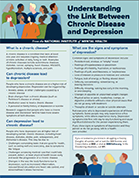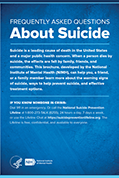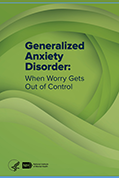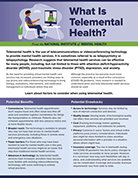Older Adults and Mental Health
Why is it important to take care of our mental health as we age?
As people age, they may experience certain life changes that impact their mental health, such as coping with a serious illness or losing a loved one. Although many people will adjust to these life changes, some may experience feelings of grief, social isolation, or loneliness. When these feelings persist, they can lead to mental illnesses, such as depression and anxiety.
Mental health is important at every stage of life. Effective treatment options are available to help older adults manage their mental health and improve their quality of life. Recognizing the signs and seeing a health care provider are the first steps to getting treatment.
Unless otherwise specified, the information on our website and in our publications is in the public domain and may be reused or copied without permission. However, you may not reuse or copy images. Please cite the National Institute of Mental Health as the source. Read our copyright policy to learn more about our guidelines for reusing NIMH content.






